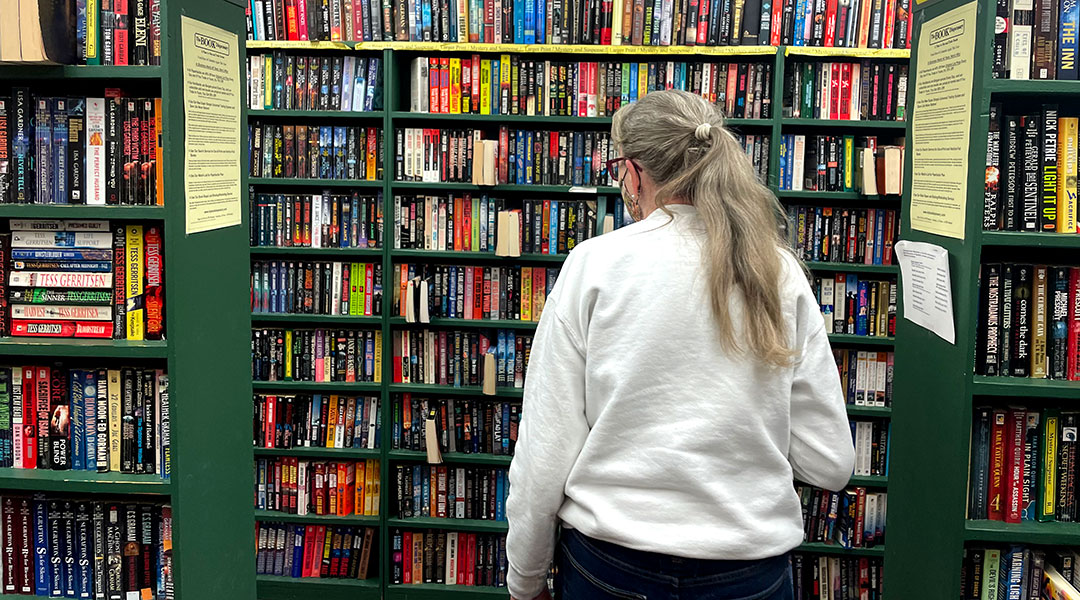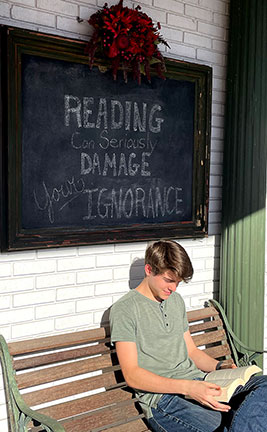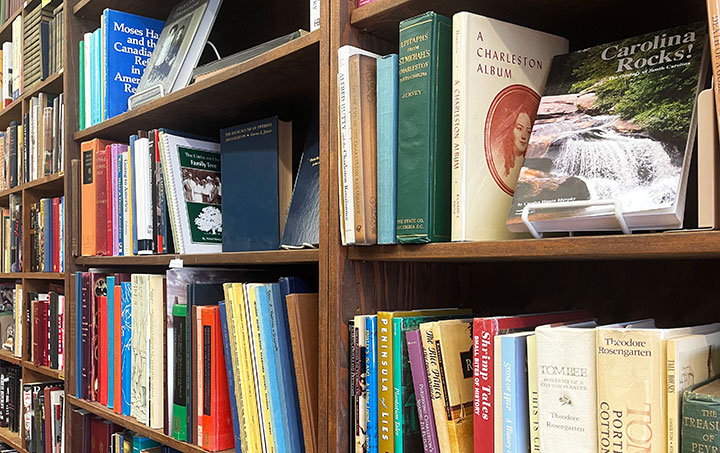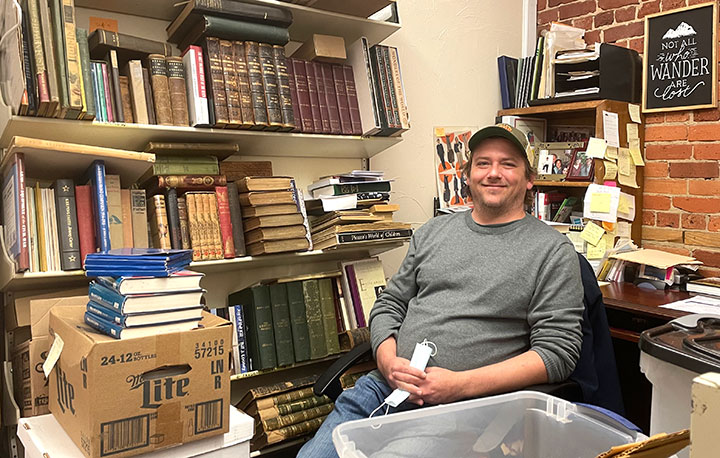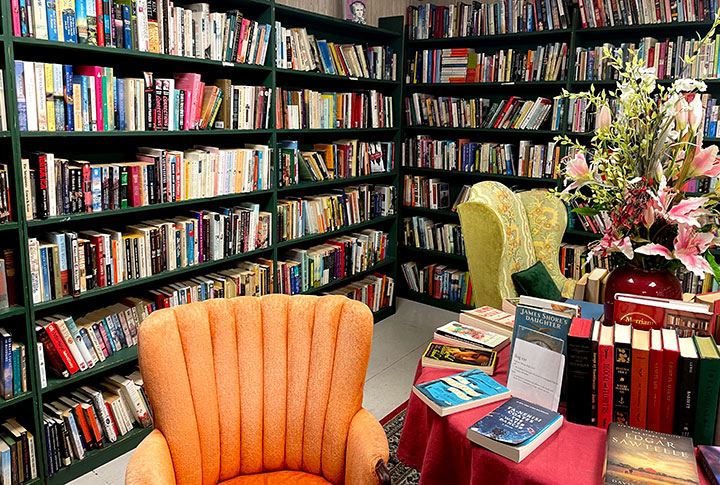“How would you bottle that smell?” asked Patti Spires, manager of The Book Dispensary, a secondhand book store in Columbia. She ruminated on the question with a quizzical smile as she settled into a vintage armchair, sipping coffee and surrounded by ceiling-high bookcases of second-hand books. On the opposite wall is a framed quote by Spanish novelist Carlos Ruiz Zafon, “I stopped in the bookshop and breathed in that perfume of paper and magic that strangely no one had ever thought of bottling.”
Independent bookstores have been called, “anchors of authenticity,” by customers and researchers who study them. It is an ambience that has proven difficult to replicate by larger booksellers.
“They have their own personalities,” said Rebecca Bruff, an author who lives in Beaufort, South Carolina. She calls the independent bookshops she frequents her “centers of gravity.”
“There is a certain beauty and intimacy in a local bookstore, it’s grounding,” said Bruff, who has written an historical novel and a children’s book.
Decades after independent booksellers were declared obsolete by technology and the invention of the internet, the storefronts have turned out to be quite resilient and competitive in the marketplace.
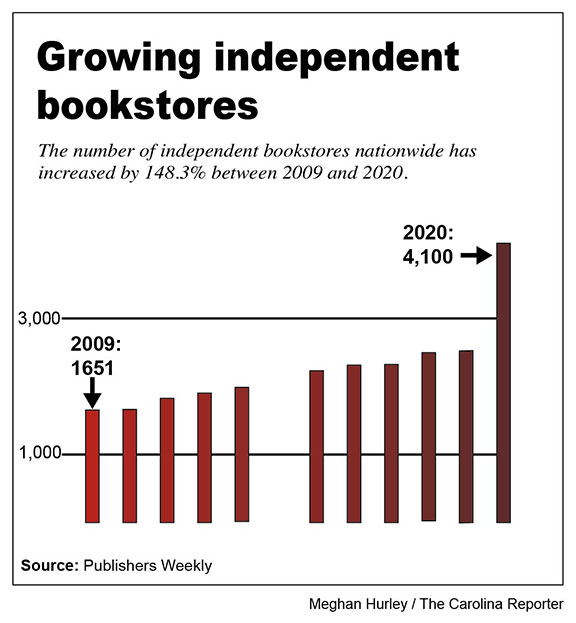
Harvard Business School professor Ryan Rafaelli conducted a year-long study, published in 2020, to examine how “community based brick and mortar retailers can achieve growth in the face of online and big box retail competition.”
The study highlights the “Three C’s,” community, curation, and convening. Though specifically the curation aspect of the strategy is what many booksellers call the “magic” of the craft.
“Customers are bound by the spirit of the community to value the guidance and expertise of the merchant who has custom curated the store,” according to Rafaelli.
“People come in here every single day and just take a deep breath in and say, ‘Ah… a real book!’” said Kristi Oberman, a Book Dispensary associate.
“They want something they can hold in their hand… the experience of it… the emotion.”
Ed’s Editions in West Columbia, a secondhand bookstore with a more specialized selection of books and antiques, offers a similar emotional experience for shoppers. Though customers may still find today’s bestsellers, oftentimes they will instead stumble upon historical and local treasures.
Bruff’s novel, “Trouble the Water,” a historical fiction novel published in 2019 and set in Beaufort, is now on the shelves of Ed’s Editions in October of 2021. The experience of seeing her name surrounded by the likes of southern novelists Pat Conroy and Cassandra King was, “gratifying, humbling, and just magical,” according to Bruff.
“It’s about building something that you yourself can be a part of,” said Eric Albritton, the son of Ed Albritton who took a “leap of faith” opening the family-run store 20 years ago.
Today, the valuables include original indentured servant documents, a letter signed by Norman Rockwell, a first edition Charles Dickens novel and an inscribed and signed “Excelsior” by Stan Lee. In the past the case has been the home to authentic pamphlets written by Picasso as well as novels complete with annotations by Andy Warhol.
Albritton joined the family business nearly eleven years ago and still finds himself surprised every day about the changing landscape of the literary scene. “It’s fascinating,” he said.
Within the bookselling and publishing industry, the “newest and hottest” authors and genres are constantly changing, according to Albritton.
“It does help to keep up with the trends because otherwise books can become stale,” said Albritton. “But then ten years from now it circles back. Collectibles and classics will land you with those authors who transcend generations.”
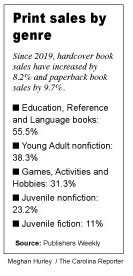
“We have a collector who will come in and buy one thousand dollars worth of two original paperbacks,” said Spires. “I’ll look at him and go, ‘Why not buy the paperback and make sure you like it first?’ and he’ll just shake his head at me.”
Spires said the collector values the originality of the first edition copy, and that by reading such he becomes part of a group much bigger than himself.
“He becomes part of a lifetime of people who have read that specific book, it’s a community,” said Spires.
“Once you finish ’em, it’s hard to read them again,” said Spires. “You get sad that you already know the ending, you know?”
Thankfully, there is no shortage of endings to be uncovered in the city’s handful of bookshops. At The Book Dispensary and Ed’s Editions, The book lover’s passionate devotion is fueled by the stores’ credit policies.
Ed’s Editions, at 406 Meeting St., offers credit and gift certificates for most books that meet the store’s condition standards. Depending on the collection at the time, the items in the store can range from $1 to $15,000.
The Book Dispensary has a constant overflow of book donations, many of which have been redeemed for store credit. The store sells half off of the original list price for paperbacks, and half off of the anticipated selling price for hardbacks. Coupled with the store’s policy of 40% off all merchandise, customers can receive up to 70% off their picks, meaning books can go for as low as $1.
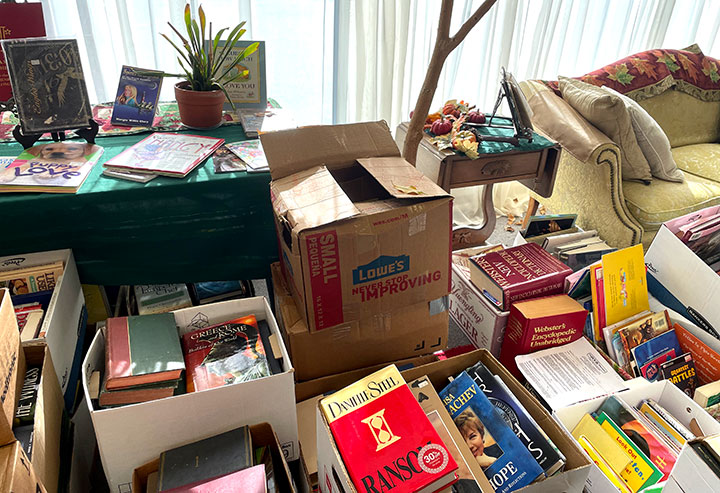
If customers should ever decide not to use the credit, it is donated to the “Teacher Project” which gifts local teachers a $100 voucher to use in the shop.
“That’s something that people will always keep coming back for,” Spires said.
Spires said one special customer she calls “the box guy,” visits the store every Saturday with two cardboard boxes of books ready to trade. Over his trips, they say he has accumulated nearly $500 of store credit.
“He takes home as much as he drops off, so his pile never thins,” Spires said. “The last time he was here his wife made him wait in the car!”
The Book Dispensary, at 710 Gracern Road in the St. Andrews area of Columbia, has long stood as one of Columbia’s most beloved used bookstores, though the loyal clientele is not confined to local proximity.
“We’re a legacy, we’re a destination, we are a tradition,” said Spires. “Our regulars aren’t just in Columbia. There’s one woman from Atlanta who we call ‘the peach lady’ and she comes once a year to stock up on enough books to last her until next year’s peach season.”
Similar to the Book Dispensary, Ed’s Editions has built a faithful customer base that “keeps coming back” to the familiar charm of the shop despite the evolution of their online presence.
“Our loyalty has changed with the internet,” said Albritton. “Thirty years ago people would come in and just wait for their book to show up, but now when they have more time they’ll just order it online.”
Before joining his father in the book business, Eric Albritton worked for a corporate bookstore with a “more convenient, but less organic” online curation process.
“In the bigger stores they’ll just ship you inventory,” said Albritton. “At a place like this you have to really learn books. We don’t just click a couple boxes and boom there it is; it’s a lot of sifting and deciding.”
The grandeur of any independent bookshop does not live and die by the presentation, but is rather intertwined in every facet of the experience.
“A woman called the store a few days ago and said she wrote a review online saying Amazon could learn something from the Book Dispensary,” said Spires.
“Her order was only $4.50,” said Spires. “But because we’re such book lovers we want to make sure nothing happens, you know?”
The woman ended her review with a statement that “The Book Dispensary is a beacon of professionalism.”
Both of the bookstores had an online presence before the pandemic began in the spring of 2020, though neither anticipated what would become of their businesses once virtual shopping became the only option.
“People were either moving or realizing they had books they didn’t want anymore, so at one point during lockdown we were offered nearly twenty times more than we were selling,” said Albritton. “It stuffed up demand, but for the first time in 20 years we sold more online than in store. Things fluctuate but we did alright.”
The Book Dispensary shared the same experience.
“Libraries were closed, and a lot of our customers split time between us and the public libraries so you can imagine what that meant for us,” said Spires.
“Our shipping quadrupled in online orders,” said Oberman.
“I think people have been forecasting the death of the independent bookstore for a long time and it’s not happening,” said Emily Brodowicz, the marketing coordinator for Powell’s bookstore, the largest and most famous independent bookstore in the world.
She, like Spires and Albritton, believe the resurgence of the independent bookstore can be described (but not bottled) in one word: resilience.

